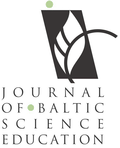DIFFERENT WAYS OF DESCRIBING EXPECTED STUDENT LEARNING OUTCOMES IN SCIENCE
| Title | DIFFERENT WAYS OF DESCRIBING EXPECTED STUDENT LEARNING OUTCOMES IN SCIENCE |
| Publication Type | Journal Article |
| Year of Publication | 2011 |
| Authors | Lavonen, J |
| Journal | Journal of Baltic Science Education |
| Volume | 10 |
| Issue | 1 |
| Start Page | 4-5 |
| Date Published | March/2011 |
| Type of Article | Editorial |
| ISSN | 1648-3898 |
| Other Numbers | ICID: 939730 |
| Keywords | learning outcomes, science education |
| Abstract | The best way of describing what and how a teacher should teach science or what a student should learn in a national level curriculum is not self-evident. Descriptions of “learning outcomes” are increasingly used and have been considered as an important basis for the quality of science education. However, there are variations in the descriptions and also whether they are written as a form of teacher behaviour or as a form of student learning. For example, in the UK the descriptions in the beginning of 1990 in the National Curriculum were written in the form of what students should learn. But the policy has changed and the new curriculum will describe what topics a teacher should introduce to students. |
| URL | http://oaji.net/articles/2014/987-1405173157.pdf |
| Refereed Designation | Refereed |
| Full Text |
